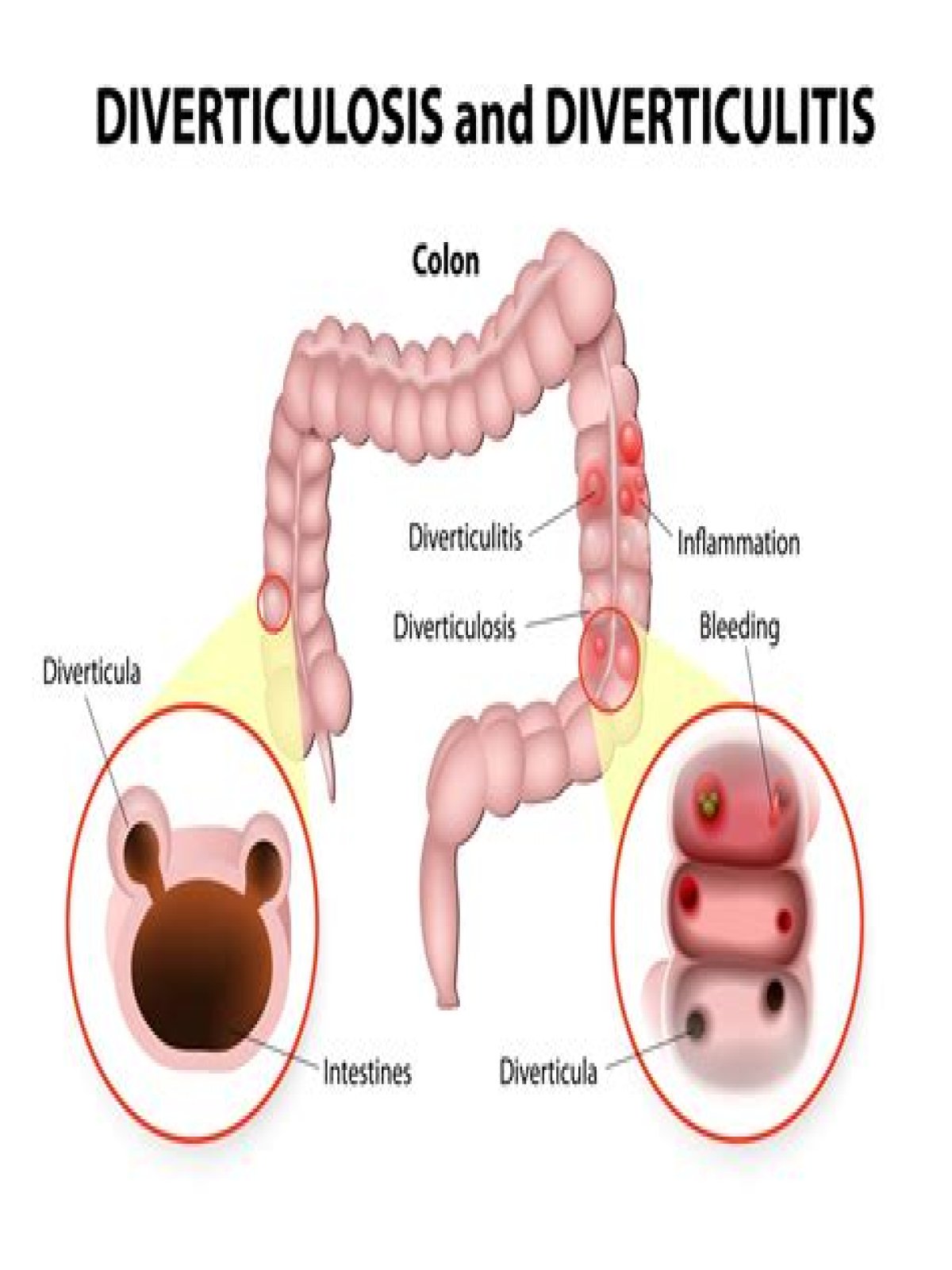Regarding this, can diverticulitis recur after surgery?
Recurrent diverticulitis occurs in about 10% after resection. The pathogenesis for recurrence is not completely understood. We studied the incidence and risk factors for recurrence and the overall morbidity and mortality of surgical therapy for diverticular disease.
Likewise, how long does it take the colon to heal after resection? You'll also have less pain and smaller scars. After 1 to 2 weeks, you may be able to get back to most of your normal routine, such as walking and working. Don't try to lift anything over 10 pounds or do intense exercise until you get your doctor's OK. It usually takes around 6 weeks to recover fully.
Likewise, people ask, does colon resection cure diverticulitis?
Most people with diverticulitis will not need surgery. The condition can usually be treated with antibiotics, fiber, and probiotics. When these treatments fail to reduce symptoms, doctors may recommend surgical removal of the infected part of the colon.
What are the side effects of a colon resection?
Side effects of a bowel resection include:
- pain.
- fatigue.
- bleeding.
- blood clots.
- diarrhea.
- constipation.
- bowel obstruction.
- infection.
Does diverticulitis shorten life span?
How often do diverticulitis flare ups happen?
How successful is diverticulitis surgery?
Is diverticulitis surgery serious?
How many times can you have diverticulitis before surgery?
How can I stop diverticulitis recurrence?
How many times can you have diverticulitis?
How do you tell if a diverticulitis attack is coming on?
What are the symptoms of a diverticulitis attack?
- nausea.
- vomiting.
- chills.
- fever.
- constipation or diarrhea.
- bloating.
- tenderness over the affected area of your abdomen.
How many hours is diverticulitis surgery?
Can diverticulitis be brought on by stress?
What triggers diverticulitis flare ups?
- No specific foods are known to trigger diverticulitis, but a low-fiber, high-animal-fat diet may increase your risk.
- Blood in the stool, a change in bowel habits marked by constipation or diarrhea, fatigue, weakness, abdominal pain, bloating, and weight loss are among the early signs of colon cancer.
